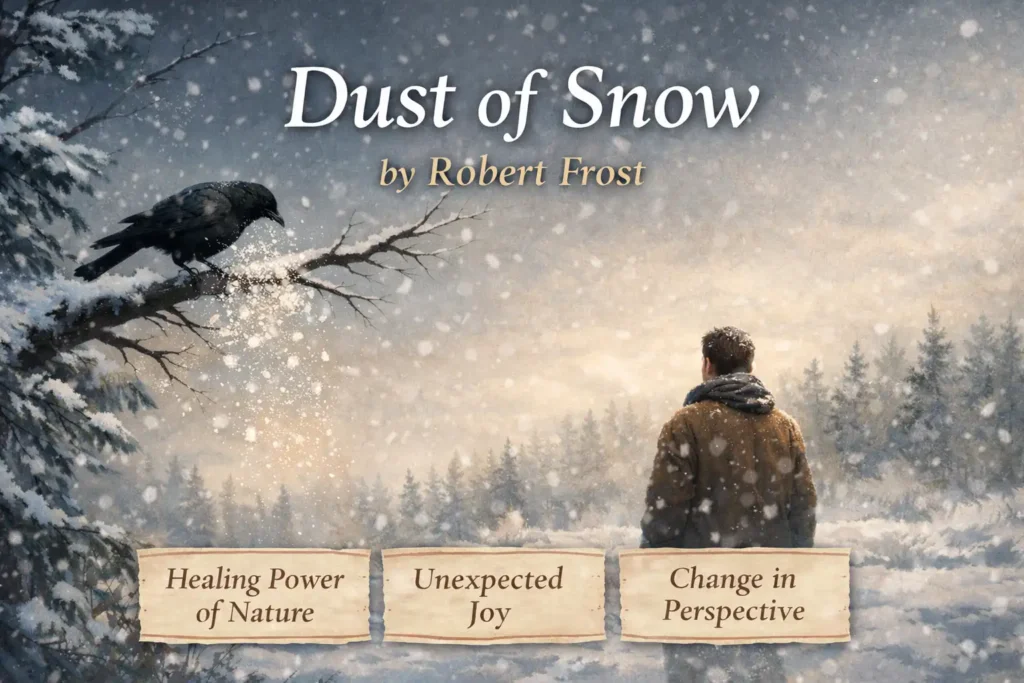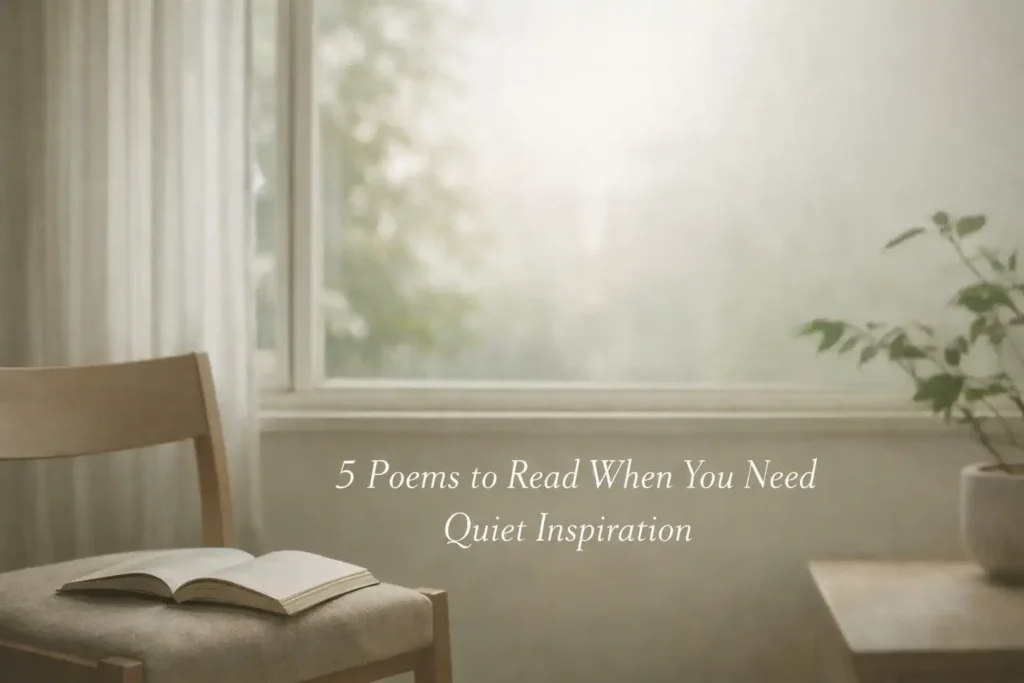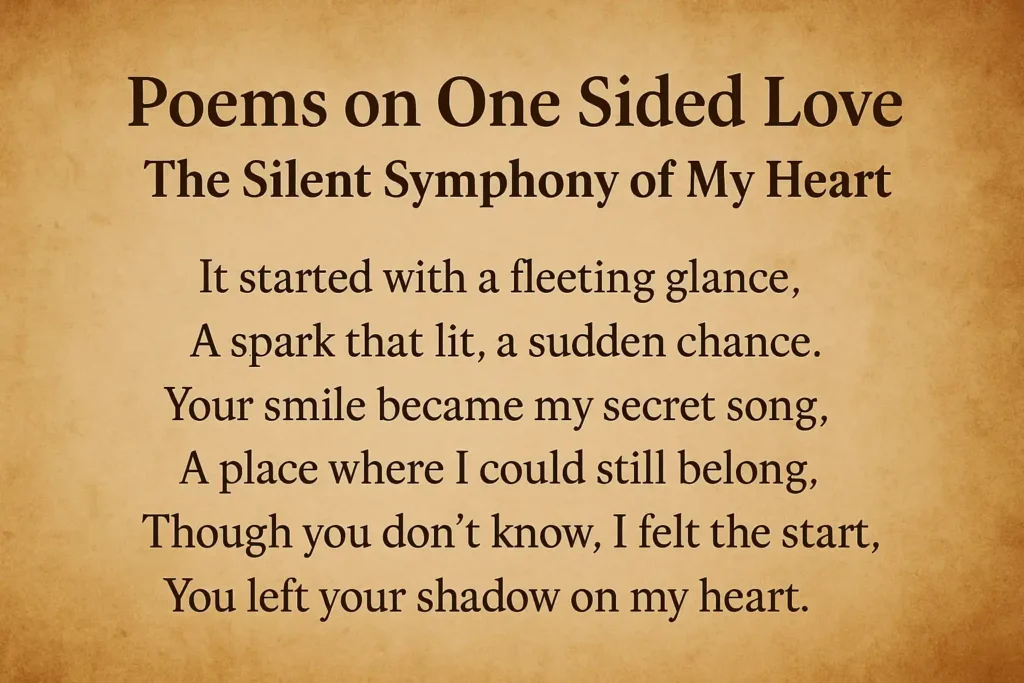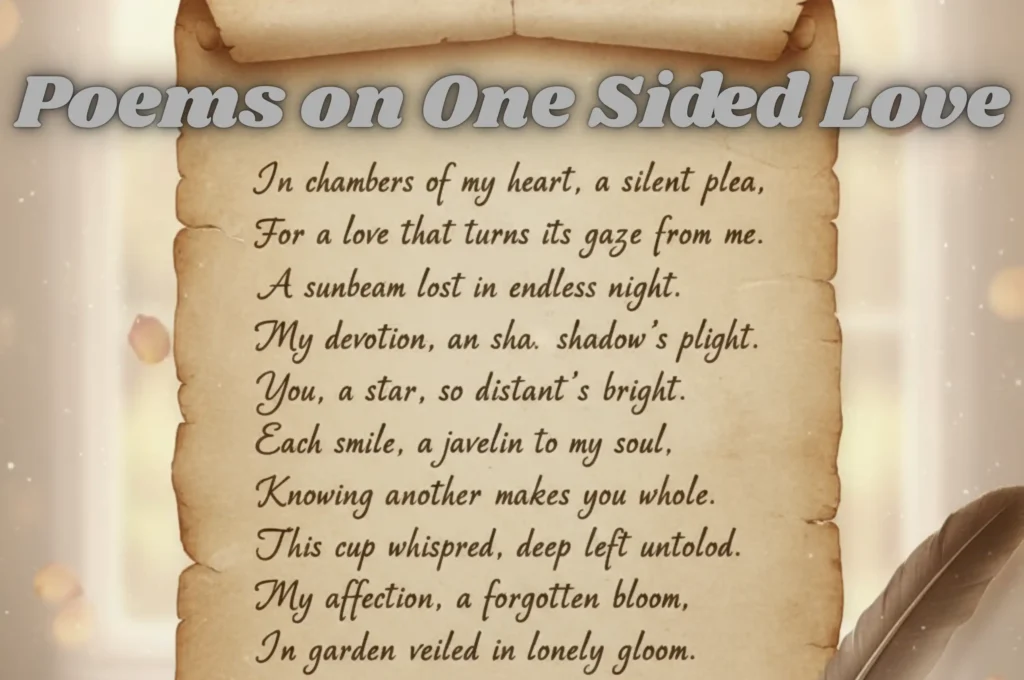“LUCY’S SONG Poem by Charles Dickens” | “LUCY’S SONG” is a heart touching poem written by Charles Dickens, the famous novelist from the Victorian era. Though known mostly for his novels like “A Tale of Two Cities,” Dickens also wrote poetry. In “LUCY’S SONG,” Dickens talks about simple things like childhood memories and the feelings they bring. The poem makes us think about happy times and sad times, all seen through the eyes of a child. With its beautiful words and pictures, “LUCY’S SONG” reminds us of the innocence and wonder of being young. It’s a poem that speaks to everyone, showing how memories stay with us, no matter how much time passes.
Explore: English Poems
Table of Contents
LUCY’S SONG Poem by Charles Dickens
LUCY’S SONG Poem Lyrics
HOW beautiful at eventide
~ Charles Dickens
To see the twilight shadows pale,
Steal o’er the landscape, far and wide,
O’er stream and meadow, mound and dale!
How soft is Nature’s calm repose
When ev’ning skies their cool dews weep:
The gentlest wind more gently blows,
As if to soothe her in her sleep!
The gay morn breaks,
Mists roll away,
All Nature awakes
To glorious day.
In my breast alone
Dark shadows remain;
The peace it has known
It can never regain.
LUCY’S SONG Poem Meaning
These lines evoke the serene beauty of the evening landscape and contrast it with the internal turmoil of the speaker. Here’s a breakdown of the meaning:
- “HOW beautiful at eventide To see the twilight shadows pale, Steal o’er the landscape, far and wide, O’er stream and meadow, mound and dale!”
- The speaker admires the tranquil beauty of dusk as the fading light casts gentle shadows over the landscape, covering everything from streams and meadows to hills and valleys.
- “How soft is Nature’s calm repose When ev’ning skies their cool dews weep: The gentlest wind more gently blows, As if to soothe her in her sleep!”
- The speaker describes the peaceful atmosphere of the evening, where nature seems to rest calmly. The mention of dew suggests the quiet moisture settling on the earth, while the gentle breeze seems to lull nature into a soothing slumber.
- “The gay morn breaks, Mists roll away, All Nature awakes To glorious day.”
- The scene shifts to the morning, where the dawn breaks, and the mist dissipates as nature awakens to a new day filled with promise and vitality.
- “In my breast alone Dark shadows remain; The peace it has known It can never regain.”
- Despite the beauty and renewal of nature around them, the speaker contrasts this with their own internal struggles. They feel a sense of darkness and unrest within themselves, suggesting a loss of inner peace that cannot be restored. This juxtaposition highlights the speaker’s personal turmoil amidst the tranquil backdrop of nature’s cycles.
Lucy’s Song Poem Analysis
“Lucy’s Song” is a poem by Charles Dickens, which reflects on the memory of a lost loved one, possibly a child. Here’s an analysis of the poem:
- Title Significance: The title “Lucy’s Song” suggests that the poem is a tribute or remembrance of someone named Lucy. It hints at the personal nature of the poem and sets the tone for a reflective and emotional piece.
- Themes:
- Loss and Grief: The poem deals with themes of loss and grief, as the speaker reminisces about the departed Lucy. This loss seems to weigh heavily on the speaker’s heart, as indicated by the nostalgic and sorrowful tone throughout the poem.
- Innocence and Childhood: There is a sense of innocence and purity associated with Lucy, suggesting that she may have been a child. The speaker’s memories of Lucy evoke a longing for the simplicity and joy of childhood.
- Memory and Remembrance: The poem reflects on the power of memory and the enduring impact of those we have lost. Despite Lucy’s absence, the speaker keeps her memory alive through their recollections, highlighting the importance of remembrance in coping with loss.
- Imagery:
- Nature Imagery: Dickens employs vivid nature imagery to evoke a sense of nostalgia and melancholy. References to “village church” and “old churchyard” evoke a pastoral setting, while images of “ancient trees” and “silent stream” contribute to the tranquil and reflective mood of the poem.
- Visual and Sensory Imagery: The poem creates a vivid sensory experience through visual and auditory imagery. Descriptions of “green graves” and “rustling leaves” appeal to the senses, immersing the reader in the speaker’s memories.
- Tone and Mood:
- Nostalgic: The tone of the poem is nostalgic and reflective, as the speaker fondly remembers Lucy and the time they shared together. There is a sense of longing for the past and a desire to hold onto cherished memories.
- Melancholic: The mood of the poem is melancholic, tinged with sadness and loss. Despite the beauty of nature surrounding them, the speaker’s thoughts are overshadowed by the absence of Lucy, creating a sense of sorrow and longing.
Overall, “Lucy’s Song” is a poignant exploration of loss, memory, and the enduring power of love. Through its evocative imagery and emotional resonance, the poem invites readers to reflect on the nature of grief and the importance of cherishing the memories of those we hold dear.



















